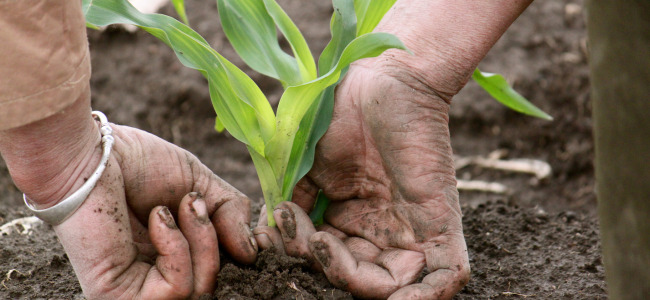Feb. 15, 2023, marked an important milestone for the U.S. Grains Council (USGC). It was on this day the organization officially embarked on its journey to align two key components of its mission of developing international markets and enabling trade with the continuously evolving sustainability requirements emerging across international supply chains.
The first step taken involved corn and the launching of two baseline tools, the Corn Sustainability Assurance Protocol (CSAP) and the Sustainable Corn Exports (SCE) web platform, to engage with international stakeholders on sustainability. In the past year, the Council has made a strong push to create awareness and drive adoption of these tools and is proud to communicate that stakeholders have responded positively to these efforts. Looking forward, the Council’s work on sustainability is likely to expand, as sustainability requirements continue to increase and commodities including barley and sorghum also move to respond to these challenges.
Corn sustainability baseline: operationalized for international markets
The CSAP and the SCE web platform were developed by the Council to support corn growers and the industry in addressing sustainability requirements across international supply chains. The CSAP was created with the goal of providing international stakeholders the full scope of the laws and regulations that underpin sustainable production in U.S. origin corn and its associated products, across multiple impact categories.
The SCE web platform leverages the CSAP’s definition of U.S. sustainable corn volumes allowing exporters and importers of U.S. corn products to issue shipment-specific documentation to satisfy sustainability requirements in international markets. These documents are called Records of Sustainability, which U.S. exporters provide to international customers at no cost, to satisfy current entry-level sustainability requirements.
Creating awareness and driving adoption
Over the last year, the Council has led more than 15 major engagements with supply chain stakeholders across the world, which included in-person, hybrid and virtual events, as well as in-country agendas with direct engagements with major customers in prioritized markets. The result of these programs allowed the Council to directly reach more than 1,600 stakeholders across key geographies, further amplified by the reach of communications through social and traditional media.
The results of the Council’s engagements to promote its sustainability programs and tools are tangible. The SCE web platform has more than 110 registered users, including all major U.S. exporters (16), as well as U.S. corn and corn product importers and supply chain users from more than 20 countries. In total, in the last 12 months there have been more than 130 Records of Sustainability issued for 11 countries, covering more than one million metric tons (39.36 million bushels) of U.S. corn products, or around $192 million in value.
Achieving recognition and laying the foundations for supply chains partnerships
The Council recognizes its tools are only as useful as its clients find them to be, particularly regarding their sustainability requirements, policies and methodologies. It is for this reason the Council also took on the task of benchmarking the CSAP against the Sustainable Agriculture Alliance (SAI) Platform’s Farm Sustainability Assessment (FSA). This process led to the addition of a significant number of assurances within the body of the CSAP document, pertaining to the laws and regulations U.S. corn farmers already comply with. This allowed the Council’s sustainability scheme to achieve gold-level equivalence under the FSA benchmarking process, which is incredibly significant as the CSAP can now be more easily incorporated within the sustainable procurement processes of major food and beverage companies that recognize SAI Platform.
As the Council’s sustainability program and its tools enter their second year of operation, the focus will continue to be on achieving awareness, recognition and driving the adoption of the tools among key buyers and stakeholders across international markets, so that U.S.-origin corn is recognized and valued for the sustainable production practices associated with it. This process will involve an intense exercise of direct engagements with customers to collaboratively address emerging sustainability requirements and develop solutions that allow for the leveraging and differentiation that U.S.-origin corn has from producers’ past, present and future investments in sustainability.

